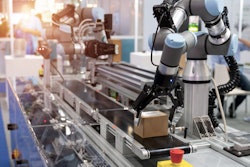ST. LOUIS (AP) -- Serious and fatal incidents of children swallowing so-called button batteries are on the rise, and a leading battery-maker is hoping to raise awareness about the problem.
The flat, coin-sized battery doesn't typically cause choking, but it can get stuck in the esophagus and cause severe burning, leading to lifelong problems. In rare cases, children can bleed to death, said Dr. Toby Litovitz, director of the National Capital Poison Center.
St. Louis-based Energizer is joining with a child safety advocacy group to alert parents and caregivers about the dangers of coin cell lithium batteries. The battery-maker and Safe Kids USA plan to announce their partnership Wednesday.
The batteries are common in adult products that tend to get into the hands of young children -- remotes, electronic key fobs, even singing greeting cards. Eleven children have died after swallowing button batteries over the past six years, and the National Capital Poison Center said about 3,500 swallowing cases are reported annually in the U.S. The U.S. Consumer Product Safety Commission issued a warning about button batteries in March.
"You could really say it's an invisible threat," said Stacey Harbour, director of marketing for Energizer. "Most of these devices are just so readily available and because the battery door isn't secure, it just makes it very accessible to the child."
Karla Rauch was preparing a first birthday party for her son, Emmett, last October when he came down with a fever and began acting lethargic. She took him to an urgent care center and was told he had a cold or flu.
But days later, Emmett began throwing up blood. An X-ray found the button battery lodged in his esophagus. Rauch said the battery came out of a remote control she had left on the floor. When Emmett got ahold of it, the battery snapped right out.
Nearly a year later, Emmett has undergone 14 surgeries to repair holes in his esophagus and other damage caused by the battery. He's relearning how to swallow and suffers from chronic lung problems.
"He's a fighter," Karla Rauch said. "We just keep fighting with him."
Litovitz said severe and fatal swallowing injuries have increased sevenfold since 1985. Part of the reason is the increased use of lithium, which provides more power in the batteries, but also is more dangerous if swallowed, Litovitz said.
"I think the parent is unknowingly thinking normal household products are safe for their children, and they're not," Litovitz said.
Makers of toys and other products designed for children must meet certain standards to ensure batteries cannot be easily removed -- such as requiring a screw to secure the compartment door. Those requirements don't exist for products meant for adults, although children can often get their hands on them.
For example, Meri-K Appy, president of Safe Kids USA, noted the batteries are used in bathroom scales, which are easily accessible to children crawling on the floor. Parents sometimes give car keys to children to play with -- and the key chain often contains a fob for opening car doors that is powered by the tiny battery.
The Energizer/Safe Kids USA effort encourages parents and caregivers to keep batteries and devices containing the batteries out of the reach of children, and to make sure the battery compartment is secure. Treatment tips will be distributed through Safe Kids USA's 600 chapters.
Energizer also is developing new packaging for its button batteries that is harder for kids to open.
Kurt Iverson, a spokesman for Duracell, Energizer's chief competitor, said his company promotes battery safety through a variety of means, including social media.
"We certainly encourage people to keep our batteries in the packaging until they are ready for use," he said. "It's just part of the baby-proofing process, and batteries have a place in that as well."
Rauch and her husband are working with Energizer and Safe Kids USA to get the word out about button batteries, and she and her husband are planning a not-for-profit to help educate parents.
"We can't control what happened to Emmett, but we can help prevent it for other families," she said.






















